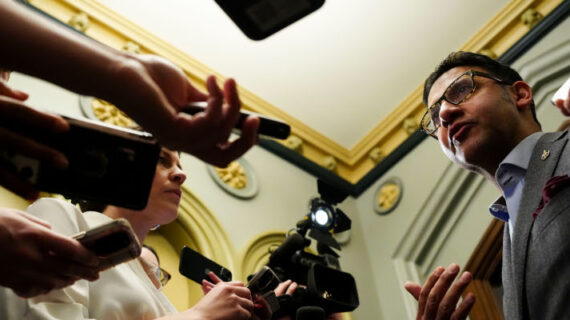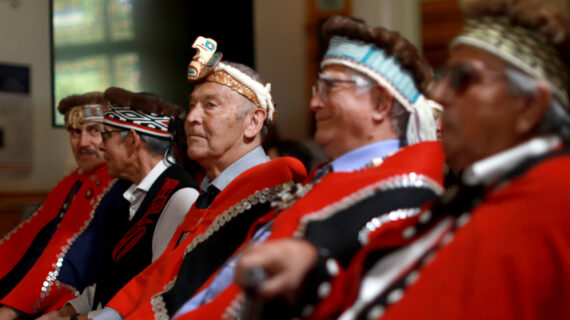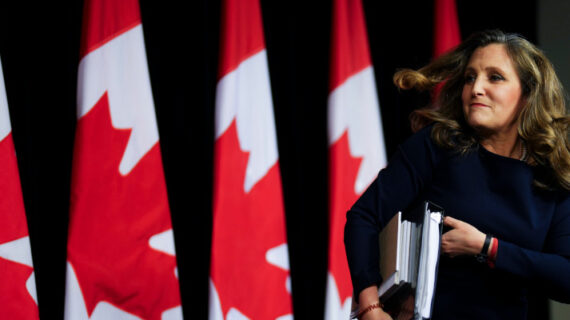- Blaine Higgs has revised a provincial policy regarding protections for LGBTQ students so that parents must be informed if a child changes their name or pronouns.
- Higgs took an onslaught of criticism from opposition parties and the national media and even sparked a slow-burning rebellion in his own party's ranks.
- Consultant Chad Bowie says there could be long-term benefits for Higgs and his party because parental rights are a reliable way to bring people out to vote.
New Brunswick Premier Blaine Higgs seems to be besieged from all sides.
With a recent change to LGBTQ policy in schools, Higgs took an onslaught of criticism from opposition parties and the national media and even sparked a slow-burning rebellion in his own party’s ranks.
The lone bright spot for the premier is that recent polling has shown that a majority of Canadians side with him on the issue.
Proponents of the policy change, which mandated that parents must be informed if their children opt to change their pronouns or name while at school, say Higgs is making a common sense appeal to parents who want to be informed about their kids. Critics argue the premier could be endangering those children by requiring parental notification.
The federal Conservatives are watching for lessons on how the issue might play nationally, while the federal Liberals have already bitterly criticized Higgs. The media has covered it all breathlessly, seeing a new front open up in the culture war.
But if Higgs can get through the internal battle to oust him, some strategists think it could be a winning issue in a general election. For now, with a majority of his own riding associations now organizing against him, Higgs is simply fighting for survival.
Chad Bowie, a consultant and federal Conservative, says there could be long-term benefits for Higgs and his party because parental rights are a reliable way to bring people out to vote and can broaden the policy scope of conservative politicians.
“Elections are emotional, and the emotional bond between a kid and parent or a grandparent is immeasurable,” says Bowie. “When the voters’ choice boils down to whether a parent or the state is best positioned to care, nurture, and support the growth and development of a child, it isn’t hard to imagine parents flocking to the polls to defend their rights.”
The trouble for Higgs began earlier this month with a caucus rebellion over changes to a policy designed to protect LGBTQ students, but which critics say leaves parents in the dark about their own kids.
On June 8, the Higgs government revised Policy 713, which was introduced by his government in 2020 and was originally intended to provide safe spaces for LGBTQ students at schools. The recent revisions mandated that parents must be informed if their children opt to change their pronouns or name while at school.
Critics of the revision have labelled it as influenced by transphobia and argue that it will be harmful to trans and non-binary students.
Higgs is now facing a caucus rebellion over the revision, with one MLA resigning from his cabinet. Additionally, six PC MLAs voted with the opposition Liberals on June 15 in the legislature, demanding a review of the revisions by New Brunswick’s child and youth advocate. CBC reported on Wednesday that the presidents of 26 of the 49 PC riding associations in New Brunswick have signed a letter calling for a leadership review.
“Elections are emotional and the emotional bond between a kid and parent or a grandparent is immeasurable.”
Chad Bowie
The embattled premier has stood his ground, and Higgs stated last week that he may call a snap election to stem the caucus revolt if needed, even if he more recently made it clear that he does not intend to call one right now. Complaints by the dissident MLAs indicate that an attempt to oust Higgs may have more to do with his leadership style over the years, rather than the revision itself.
Pundits and politicians across the country have taken sides in the debate over Policy 713. The National Post and the Globe & Mail have published editorials respectively supporting and opposing the revisions. The controversy has even made headlines in American publications like the New York Times.
Liberal Prime Minister Justin Trudeau has taken a strong stance against the changes to Policy 713 while federal Conservative leader Pierre Poilievre has argued that provincial governments should make their own decisions regarding public education.
Kelden Formosa, who is a Grade 2 charter school teacher in Calgary and contributor to The Hub, says the Policy 713 revision is a commonsense approach to ensuring a student’s wellbeing.
“I don’t think this about transphobia. Canadians are ‘live and let live’ kind of people when it comes to how adults choose to live their lives,” says Formosa. “But principles like ‘live and let live’ aren’t enough for children, who can’t just be left alone to take care of themselves.”
Formosa says parental rights have been simmering as a national debate for some time, and that people everywhere are concerned that too many schools are de-emphasizing academic instruction and moral formation in favour of political and social activism.
Bowie notes that the debate about parental rights is not exclusive to New Brunswick and suggests that Higgs’ motivation to revise Policy 713 is likely a simple one.
“The premier has spoken only about how he feels as a parent and grandparent and I don’t read much more into it than that,” says Bowie.
Opinions are split on whether Higgs has made a wily electoral move or inadvertently sealed his own downfall.
Robert Martin, a data analyst with Mainstreet Research, compares Higgs’ changes to Policy 713 to the 2021 Virginia gubernatorial election, in which Republican nominee Glenn Youngkin argued for parental rights in public education.
“If an election were called this would be an important test for this type of message north of the border, and the result would have national consequences,” says Martin.
Higgs will have a divided caucus if he chooses to go to the polls early, unlike Glenn Youngkin, who had the full backing of the Virginia chapter of the Republican Party in 2021.
Dominic Cardy, an independent MLA and former minister of education, co-authored the original version of Policy 713. He is a staunch critic of the revision’s substance and implementation.
Cardy says Policy 713’s revision is moving the government in a socially conservative direction, which he says is at odds with past PC leaders in New Brunswick who led moderate governments. He says talking points over Policy 713 in the legislature, where some members connected the policy to minors being forced to get gender reassignment surgery, are incorrect.
“As the person who signed Policy 713, I know that has nothing to do with it and isn’t something that I would support,” says Cardy. “A lot of people who support the rights of people to be who they want to be in no way believe that children should be forced into getting gender reassignment surgeries or some of these more extreme things that are out there.”
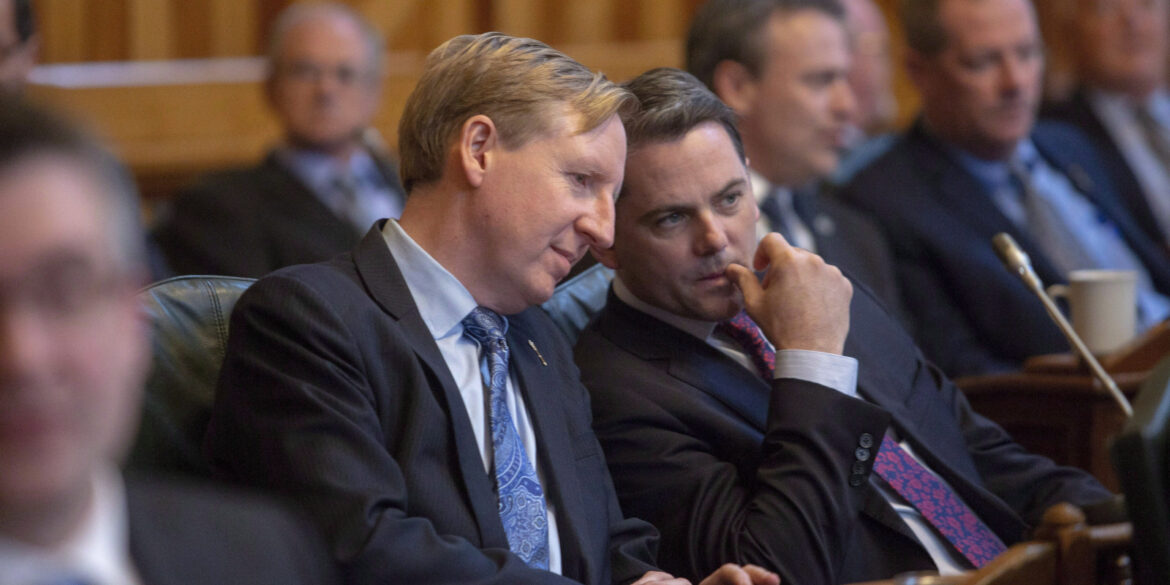
Many Atlantic PC parties have a reputation for moderate politics, but Chad Bowie argues that New Brunswick is a more socially conservative province than Nova Scotia or Prince Edward Island.
Higgs refused provincial government funding for private abortion clinics that perform out-of-hospital operations in 2020, citing the provincial government’s lack of obligation to fund private health care. He is reported to have strong personal opinions on abortion. Higgs went on to win a majority government later that year, with many observers crediting his government’s handling of the COVID-19 pandemic for the victory.
“Blaine Higgs is a kind of conservative for a province that does swing a bit more to the Right,” says Bowie. “There is a bit more of an underpinning of social conservatism in New Brunswick than the other Atlantic provinces.”
However, Bowie suggests that the revision to Policy 713 cannot be described as socially conservative or socially liberal and does not fit within the traditional Left-Right political spectrum.
“It’s not about that to me, this is more fundamental than that,” says Bowie. “It’s about a much clearer, much more base level, ballot question, which is essentially: do parents have a right to know the person their children are or are becoming when they go to school?”
Polling suggests that most Canadians agree with Higgs, although critics think a more nuanced question might deliver different results.
A national Leger poll conducted during the controversy over Policy 713 showed that 57 percent of those surveyed agreed that schools should inform parents if their students changed their pronouns. Just 18 percent disagreed, while 25 percent were unsure.1An online survey of 1,523 Canadians aged 18+ was completed between May 5 and 7, 2023 using Leger’s online panel. For comparative purposes, a probability sample of 1,523 respondents would have a margin of error of ±2.5%, 19 times out of 20 However, Cardy argues that the poll questions do not address the full consequences of Policy 713.
“I think if you ask just about anyone: ‘Do you think parents should be and know what’s going on with their kids?’ They’re going to answer yes,” says Cardy. “If you then ask the next part of the question: ‘Do you think that parents should know what’s going on with their kids if they’re going to use that information to potentially harm their children?’ I think most people would say no.”
The same poll also revealed that 47 percent of those surveyed supported placing sensitive content related to gender and race online for parents to view, while 31 percent opposed it, with 22 percent being unsure. Furthermore, 51 percent of those surveyed believed public schools were moving in the wrong direction, while 25 percent said it was going in the right direction, with 24 percent being unsure.
“It varies from school to school and teacher to teacher, but in my experience, parents are right to be concerned that many public school districts are no longer focusing on what matters most,” says Formosa.
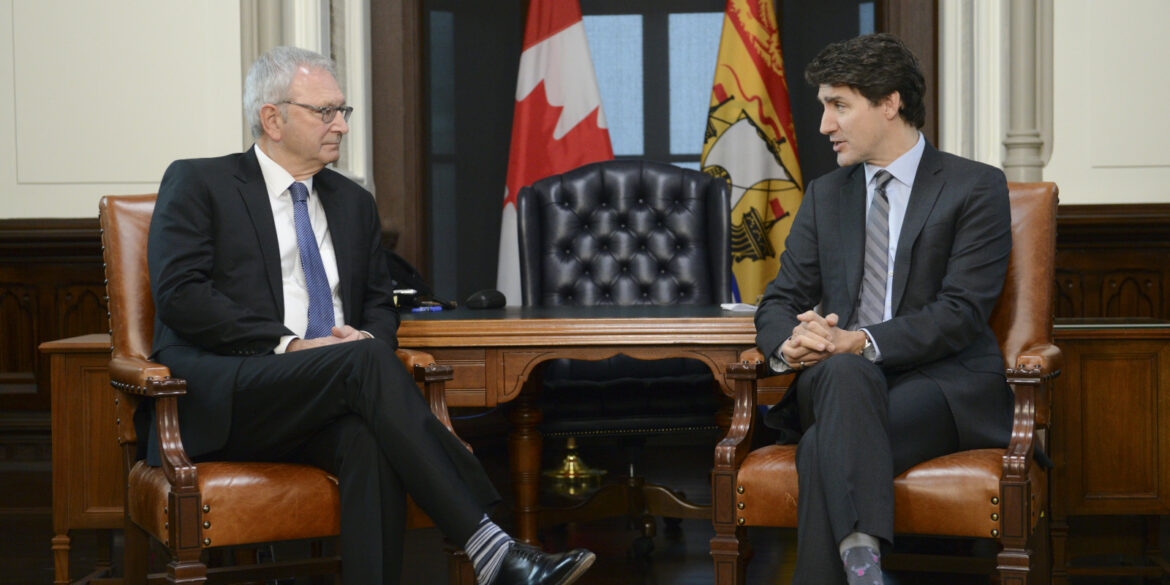
One PC MLA who supports the revision to Policy 713, asked in the legislature why the revision is so controversial when a parent’s permission is required for something as minor as a child’s participation in field trips. Formosa says that, as a teacher, he speaks with parents all the time about issues as small as their math quiz results.
“When we talk about kids’ mental health issues, I think informing parents, and then discussing how we can help support their kids together, is a basic responsibility for teachers,” says Formosa.
Election or not, Higgs will have to survive the ongoing rebellion within his own PC party. Issues with the party caucus have gone back to Higgs’ bid to lead the PCs in 2016 when he successfully ran with the support of only two sitting PC MLAs. When PC MLA Dorothy Shephard resigned from Higgs’s caucus in response to the Policy 713 revisions last week, it was revealed she had written a letter to the Premier in 2021 warning that his leadership style would be his government’s undoing.
While Higgs may be willing, but reluctant, to call a snap election, he has said he is open to a leadership review among the party’s members, despite the possible risk posed by his history of internal caucus disputes. Just over a year ago, former Alberta premier and United Conservative Party leader Jason Kenney stepped down after narrowly winning a leadership review, with nearly half the party voting against him after years of infighting in the UCP during the pandemic.
Resentments may also still be lingering from another internal battle within the PC government. Last fall, the Higgs government had planned to phase out the optional French-immersion program in New Brunswick and replace it with a universal French language education program that would see half-days of English and French language instruction. Higgs said Francophones, who comprise roughly a third of the province’s population, disproportionately benefit from bilingualism, which is unfair to unilingual residents like himself.
The PC government would later back down on the changes to the French-immersion program in February after what many observers described as pressure from parents in New Brunswick who opposed it.
On the Policy 713 revisions, however, Higgs is digging in his heels for the time being, even while threats of a leadership review and a snap election continue to fly.
Bowie says he hopes a snap election over Policy 713 can be avoided, so the government can continue to focus on the province’s finances, but doesn’t think it’s a surefire loser for Higgs.
“I’d hate to put that at risk for an issue that I think is still navigable within the existing legislative framework,” says Bowie. “Could he win on it? I think so. At the same time, it’s hard to imagine this being the kind of issue that sustains an entire campaign.”


